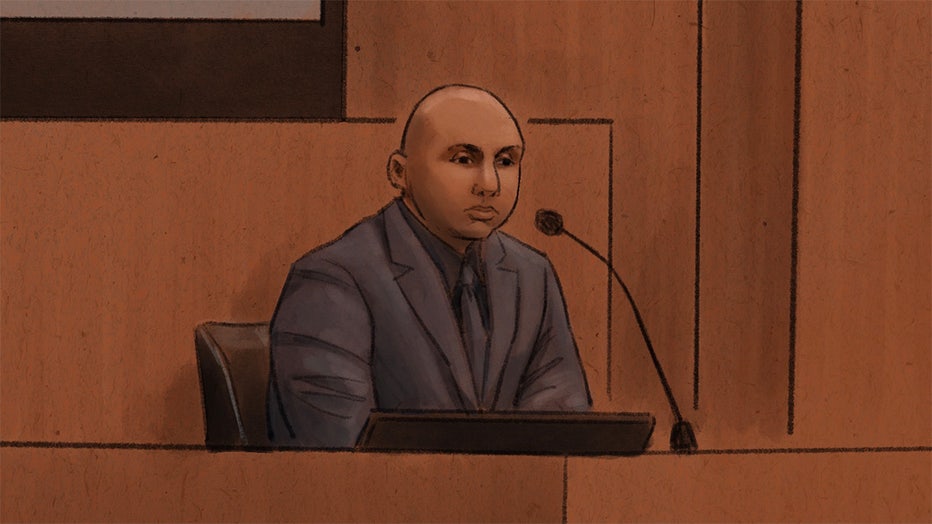Former MPD officer Kueng testifies, explains failure to provide medical aid

Former MPD officer Kueng testifies, explains failure to provide medical aid
Former Minneapolis Police officer J. Alexander Kueng faced tough questioning Thursday about why he did not intervene with Derek Chauvin’s use of force that led to the death of George Floyd.
(FOX 9) - On cross-examination, former Minneapolis Police officer J. Alexander Kueng faced tough questioning Thursday about why he did not intervene with Derek Chauvin’s use of force and why he failed to provide medical aid to George Floyd when it appeared to bystanders he was going unconscious, and then stopped breathing.
Kueng, along with Thomas Lane and Tou Thao, are being tried jointly in St. Paul on federal charges they violated George Floyd’s constitutional rights.
Kueng was asked about his training to turn people on their side, to better breathe, once they were restrained. He answered he was trained to do that, but "only when it’s safe to do so."
Asked about previous testimony that he didn’t see that Derek Chauvin had his knee directly on George Floyd’s neck, how he possibly couldn’t not see that, he replied "I didn’t really focus on his position. I had tunnel vision."
Kueng was pressed by prosecutor Manda Sertich that officers are trained about a duty to intervene with unreasonable force. He answered her "yes, ma’am, but only if they can understand the force is unreasonable."
Much of Kueng’s defense is that he did not perceive Chauvin’s use of force as improper, not just because he didn’t clearly see it, but also because as a rookie on his third shift, he did perceive Chauvin as in charge, despite official policy.

Former Minneapolis Police officer J. Alexander Kueng
"There’s an official role for seniority," he testified. When Sertich pushed that Chauvin was no longer Kueng’s Field Training Officer, therefore could not get him fired if he didn’t like something Kueng did, he disagreed. "I’m still on probation," at that point he said.
Kueng testified that he never considered Floyd to be in serious medical need, which is why he did not do more to provide aid. This was also because he looked up to Chauvin as a senior officer, and also as a teacher, and trusted that the veteran was reacting appropriately.
Sertich challenged him on this because he did check for Floyd’s pulse, as the bystanders were clearly pleading they do. She said this must be an indication he thought Floyd was in distress. He said that when he told Chauvin he could not find a pulse, he trusted that Chauvin would check on Floyd’s neck. He also said he did not take his pulse check, on Floyd’s hand-cuffed wrist, to be accurate, so did not automatically assume Floyd was in cardiac arrest.
Did he ever, then, ask Chauvin to check Floyd’s carotid artery? "I did not," he admitted.
Later in the day, the defense brought a use of force expert, who further raised doubt about MPD training and added testimony that supported the defense that Chauvin would be in charge and that Keung would absolutely follow his lead.
Steve Ijames, a former police chief, also testified for the defense in the Kim Potter Trial. Here, Ijames said he found the MPD duty to intervene training to be very inadequate, not once leading recruits through various scenarios in which force goes too far. And as for Chauvin’s influence, "a senior officer, particularly one who is a teacher or others, has enormous respect."
Following him, the defense brought a retired MPD lieutenant who worked at the third precinct at the time of Floyd’s death. He also said, despite what policy says, it is common practice that if no supervisor is present, whoever is the senior officer is absolutely in charge.

